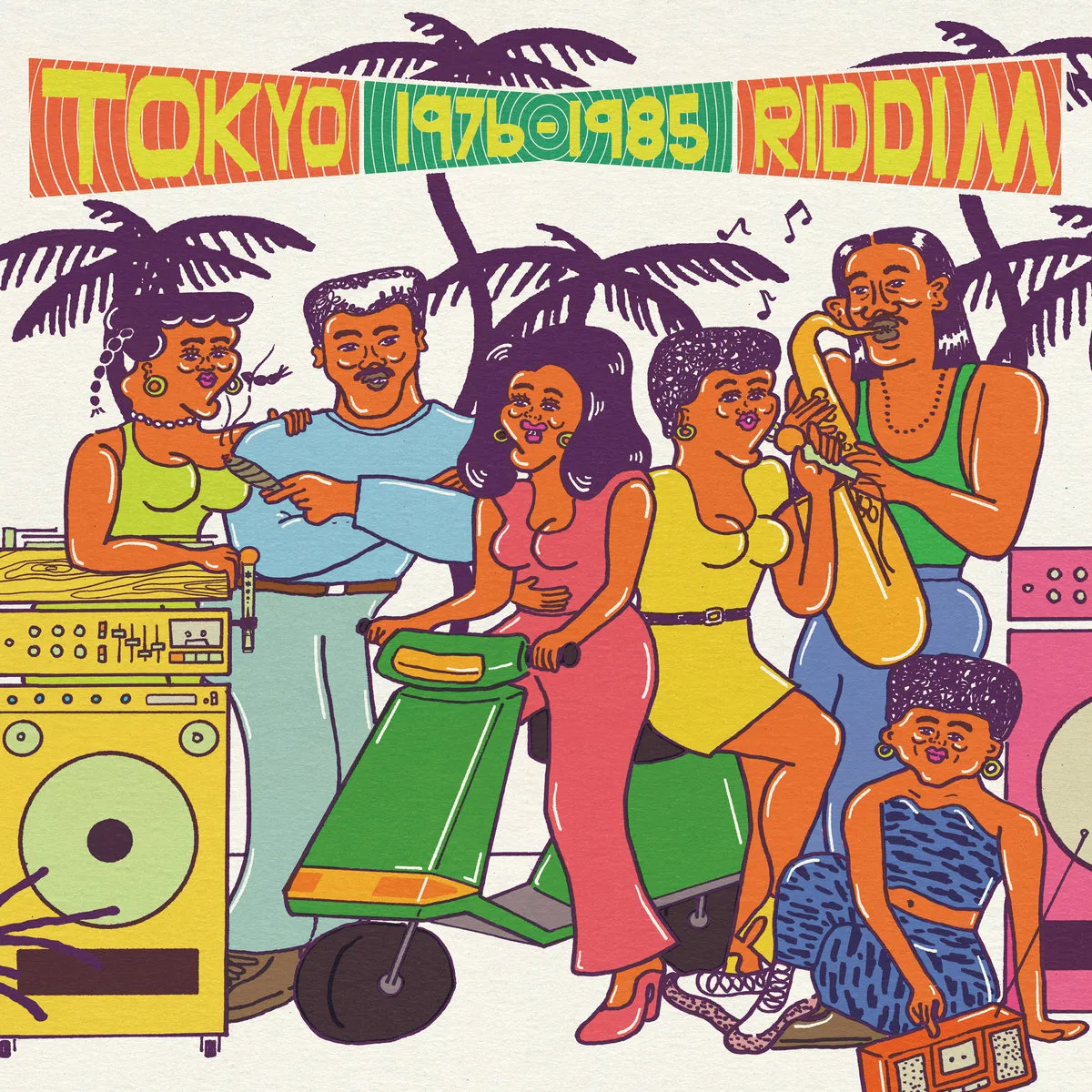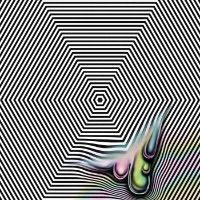- LP
- Recommended
- Back In
Various
Tokyo Riddim 1976-1985
Time Capsule - Cat No: TIME016
- updated:2024-10-28
Kay Suzukiと、Pol Valls の〈Time Capsule〉チームによる、イギリスを経由して届いたレゲエと融合した昭和の歌謡曲を中心に集めた魅惑の和製ラバーズ・ロック・コンピレーション。ただ甘いだけのレゲエなだけではない、リディム、バックトラック、プロダクションへの目線が素晴らしいコンピレーション。
【TIME CAPSULE キャンペーン】
TIME CAPSULEのタイトル各種を3点以上お買い上げで、レーベルのオリジナル・トートバッグをプレゼント!!
※コメント下に詳細がございます。
Track List
-
A1. Miki Hirayama - Tsukikage No Nagisa
04:29 -
A2. Miki Hirayama - Denshi Lenzi
03:52 -
A3. Chu Kosaka - Music
05:21 -
A4. Izumi “Mimi” Kobayashi - Lazy love
04:23 -
B1. Junko Yagami - Johannesburg
05:20 -
B2. Miharu Koshi - Coffee Break
04:51 -
B3. Marlene - Hittin' me where it hurts
05:00 -
B4. Lily - Tenkini Naare
03:19
The smooth and funky sound of prime-time Japanese reggae pop in the 1970s and ‘80s fired up an obsession with Jamaican music that persists to the present day.
If there is a year zero for the introduction of reggae music to Japan, you’d be forgiven for thinking it was 1979 when Bob Marley and the Wailers toured the country, trailed by an entourage of journalists, photographers and fans ready to spread the message of the music into all corners of Japanese society.
But the story of Japanese reggae is not a linear one, and the music that is collected on Tokyo Riddim 1976-1985 captures the moment J-reggae entered the broader public consciousness, merging commercial city pop style with an infectious backbeat, that has drawn comparisons with the emergence of Lovers Rock in the UK.
Rather than look directly to Jamaica, many producers and artists in Japan were inspired instead by the more approachable sounds of The Police and UB40, their reggae fix arriving pre-filtered through the lens of new wave pop from the UK. Playful and groovy, these album deep cuts have been overlooked for too long.
Among them are Miki Hirayama, the idol singer who borrowed the bassline from Bob Marley’s Natural Mystic on ‘Denshi Lenzi’, Chu Kosaka, who headed to Hawaii to cut the Jimmy Cliff-inspired ‘Music’ and Marlene, the Philippine songstress whose cover of Roberta Flack’s ‘Hittin’ Me Wear It Hurts’ owed much to her producer’s obsession with Sly & Robbie’s Compass Point sound.
Then there was Izumi “Mimi” Kobayashi, who enlisted the Babylon Warriors to perform on a dubbed-out version of her own track ‘Lazy Love’, the city pop-meets-new wave reggae sound of Miharu Koshi’s ‘Coffee Break’, Junko Yagami’s anti-apartheid deep cut ‘Johannesburg’ and Lily, whose ‘Tenki Ni Naare’ was produced by Ryuichi Sakamoto and closes out the compilation with a flourish.
While these stories may not always conform to neat narratives, they do provide a more accurate reflection of the indirect ways in which styles infiltrate one another and, in their naivety, have the potential to create something beautifully strange and entirely new. Previously only available in Japan, the tracks on this compilation are a testament to that curious alchemy.
Tokyo Riddim 1976-1985 is released on vinyl and as a full album download (no streaming), featuring original artwork by Japanese Fukuoka-based artist Noncheleee, whose cover pays homage to the iconic dancehall album art of Wilfred Limonious.
Released on 1st September, Tokyo Riddim 1976-1985 is a part of Time Capsule's Nippon Series, a loose series of compilations exploring different musical scenes from Japan between the 1960s and 2010s.
If there is a year zero for the introduction of reggae music to Japan, you’d be forgiven for thinking it was 1979 when Bob Marley and the Wailers toured the country, trailed by an entourage of journalists, photographers and fans ready to spread the message of the music into all corners of Japanese society.
But the story of Japanese reggae is not a linear one, and the music that is collected on Tokyo Riddim 1976-1985 captures the moment J-reggae entered the broader public consciousness, merging commercial city pop style with an infectious backbeat, that has drawn comparisons with the emergence of Lovers Rock in the UK.
Rather than look directly to Jamaica, many producers and artists in Japan were inspired instead by the more approachable sounds of The Police and UB40, their reggae fix arriving pre-filtered through the lens of new wave pop from the UK. Playful and groovy, these album deep cuts have been overlooked for too long.
Among them are Miki Hirayama, the idol singer who borrowed the bassline from Bob Marley’s Natural Mystic on ‘Denshi Lenzi’, Chu Kosaka, who headed to Hawaii to cut the Jimmy Cliff-inspired ‘Music’ and Marlene, the Philippine songstress whose cover of Roberta Flack’s ‘Hittin’ Me Wear It Hurts’ owed much to her producer’s obsession with Sly & Robbie’s Compass Point sound.
Then there was Izumi “Mimi” Kobayashi, who enlisted the Babylon Warriors to perform on a dubbed-out version of her own track ‘Lazy Love’, the city pop-meets-new wave reggae sound of Miharu Koshi’s ‘Coffee Break’, Junko Yagami’s anti-apartheid deep cut ‘Johannesburg’ and Lily, whose ‘Tenki Ni Naare’ was produced by Ryuichi Sakamoto and closes out the compilation with a flourish.
While these stories may not always conform to neat narratives, they do provide a more accurate reflection of the indirect ways in which styles infiltrate one another and, in their naivety, have the potential to create something beautifully strange and entirely new. Previously only available in Japan, the tracks on this compilation are a testament to that curious alchemy.
Tokyo Riddim 1976-1985 is released on vinyl and as a full album download (no streaming), featuring original artwork by Japanese Fukuoka-based artist Noncheleee, whose cover pays homage to the iconic dancehall album art of Wilfred Limonious.
Released on 1st September, Tokyo Riddim 1976-1985 is a part of Time Capsule's Nippon Series, a loose series of compilations exploring different musical scenes from Japan between the 1960s and 2010s.




1970年代後半、少しづつ日本の大衆の耳に届き始めていたレゲエは歌謡曲やシティ・ポップと融合する事で、イギリスで同時期に起こっていたラバーズ・ロックとは全く違ったルートを通ってそのポップ性に辿り着く事になった。
ここに収録された日本のプロデューサーやアーティスト達はジャマイカからの政治性が強いレゲエの直接的な影響よりも、むしろポリスやUB40といった英国のニュー・ウェーヴ・ポップを経由したサウンドからの影響が強く、マーリーが「パンキー・レゲエ・パーティー」で歌ったような「社会から拒絶された者たち」向けの音楽ではなく、あくまで急成長するバブル前の日本の経済に放たれた商業的娯楽音楽のバラエティの一種としてアルバムの奥深くに存在していた音楽だった。近田春夫がプロデュースを手がけた平山みき1982年のアルバム「鬼ヶ島」からの2曲は、近田が「アース・ウィンド&ファイアーとウェザー・リポートとポリスが混ざったような凄いバンド」と評した人種熱が演奏を担当。波音から始まるロマンチック和製ラバーズ「月影の渚」に続くのはボブ・マーリー「ナチュラル・ミスティック」のベースラインを借用した硬派なレゲエチューン「電子レンジ」。更には1976年の時点で既にジミー・クリフから影響を受けてハワイで録音された小坂忠の「ミュージック」の他、コンパス・スタジオからの影響を色濃く受けたマライヤの笹路正徳が1981年にプロデュースし、フィリピンから来日したばかりの18歳のマリーンが歌うロバータ・フラックのレゲエ・カバー「ヒッティン・ミー・ウェア・イット・ハーツ」を収録。うる星やつらのテーマ「ラムのラブソング」の国民的ヒットで知られ、84年から現在も英国に在住している小林”ミミ”泉美の1981年作「レイジー・ラブ」はLAでのアルバム製作中、たまたま見に行ったUB40の前座に出ていたレゲエ・バンド、バビロン・ウォーリアーズを彼女が気に入りその場でレコーディングをオファー。楽譜が読めないミュージシャン達に彼女がスタジオで歌って聞かせてから録音されたという。更にはシティ・ポップとニュー・ウェーヴ・レゲエが融合された越美晴の「コーヒー・ブレイク」、八神純子によるアパルトヘイトを嘆くコンシャス・レゲエ「ジョハナスバーグ」、亡き坂本龍一による管弦楽の編曲が美しいリリィ、1976年作「天気になあれ」を収録。
当時の写真と日本語、英語の両方を掲載した4ページ分ライナーノーツに加え、Wilfred Limonious を彷彿させる福岡在住の人気イラストレーターNoncheleeeによる書き下ろしアートワークをフィーチャーしたアナログLPとアルバム・ダウンロードのみの販売(配信無し)。「Tokyo Riddim 1976-1985」はタイム・カプセルが日本の過去の様々なシーンを切り取って紹介する “Nippon Series” の一部です。これから発売されるシリーズ続編も乞うご期待。
--------
【TIME CAPSULE キャンペーン】
TIME CAPSULEのタイトル各種を3点以上お買い上げで、レーベルのオリジナル・トートバッグをプレゼント!!
●対象商品●
TIME CAPSULEのタイトル各種(LP、7inchなどのフォーマットは問いません)
アーティスト名表記の下部にあるレーベル名をクリックすると一覧でご覧いただけます。
※ 先着優先で数に限りがございます。ご了承お願いいたします。
※ 終了期限はございませんが、無くなり次第キャンペーンは終了とさせていただきます。